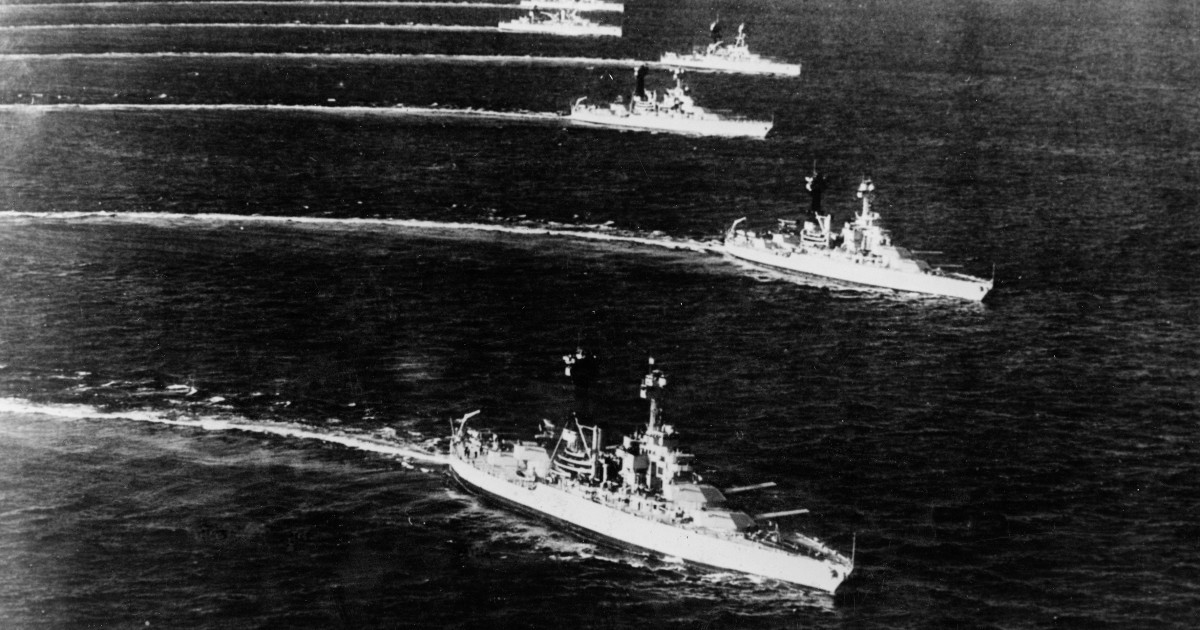the Falkland Islands On the other hand Malvinas On the other hand. They are the same but to separate them there is a file Ocean. After 40 years of war between the British and Argentine armies London e Buenos Aires Tensions have returned to the disputed islands of the South Atlantic United kingdom e Argentina. Just as the declassified London archive reveals that warships are lined up in 1982 From the then Prime Minister Margaret Thatcher well contained 31 nuclear weapons. The re-issue of the conflict (this time only in a metaphorical sense) is in the news for both countries these days. In fact, Argentina claims sovereignty over the Malvinas Islands, an archipelago that was occupied by the United Kingdom in 1833 and is today a British overseas territory. The UK, for its part, has no intention of giving up the archipelago it calls the Falkland Islands, as well South Georgia, everyone Australian sandwich and surrounding marine areas. Between the two fights, it was United nations who are the places of contentionNon-Self-Governing Territories“And I’m arguing Negotiations between the UK and Argentina.
Monday January 3, a 189 years of British occupationThe Argentine government invoked the “rape” of 1833, renewing its demand for the restoration of “Argentine sovereignty” over the disputed territories. Starting with the boss Alberto Fernandez, which launched the “40 Years Agenda Malvinas” to commemorate the fallen during the war. On April 2, 1982, in fact, General Leopoldo Galtieri, at that time the head of the Argentine military council, Try to launch an armed raid to recover the lost islands. Although the British were taken by surprise, they organized a counterattack and won the war, which ended on June 14 of the same year. with 255 British casualties, 649 Argentines, and three civilians. Runner Four years later, in the World Cup quarter-finals in Mexico, “Mano de Dios” was from Diego Armando Maradona reported In vogue, the revenge of the football field. President Fernandez’s demands? His predecessor cut off the resumption of negotiations Mauricio Macri “Achieving a peaceful solution” as encouraged by United Nations Resolution 2065 of 1965 and other international forums.
The UK has always refused requests, despite requests from the United Nations and international law. And indeed, on the occasion of Christmas, last December 24, British Prime Minister Boris Johnson He returned to the topic, emphasizing that 2022 marks the “anniversary of the conquest, occupation and liberation of our islands”. Not quite a conciliatory message. With a sarcastic joke, Johnson himself stated that “even the International Table Tennis Federation (…) recently confirmed that he considers Falklands British players”. Needless to say, the statements added fuel to the fire and provoked reactions in Buenos Aires (“hostile rhetoric and provocation of war”).
Speaking of war, a novelty emerges from London that may generate embarrassment: The warships deployed by then British Prime Minister Margaret Thatcher carried 31 nuclear weapons. Revealed on the Declassified UK website, which unveiled a new declassified document published in the British National Archives. As it emerged from the “Top Secret Atomic” file, 18 nuclear weapons were on the British aircraft carrier HMS Hermes, and 12 on the aircraft carrier Indomitable (where Prince Andrew took over) and one on board the auxiliary ship of the Royal Regent’s fleet. A stressful presence as revealed by him Richard Norton TaylorThe British investigative journalist caused “panic” among British officials, afraid of the harm that might be caused by an accident and the public knowledge of it. Indeed, as early as 2003, the British Ministry of Defense recognized the existence of atomic weapons during the Falklands War, but so far it is not known how many weapons there are, and other details, such as the dispute between the Ministry, are not known. Defense and Foreign Affairs.

“Infuriatingly humble analyst. Bacon maven. Proud food specialist. Certified reader. Avid writer. Zombie advocate. Incurable problem solver.”


